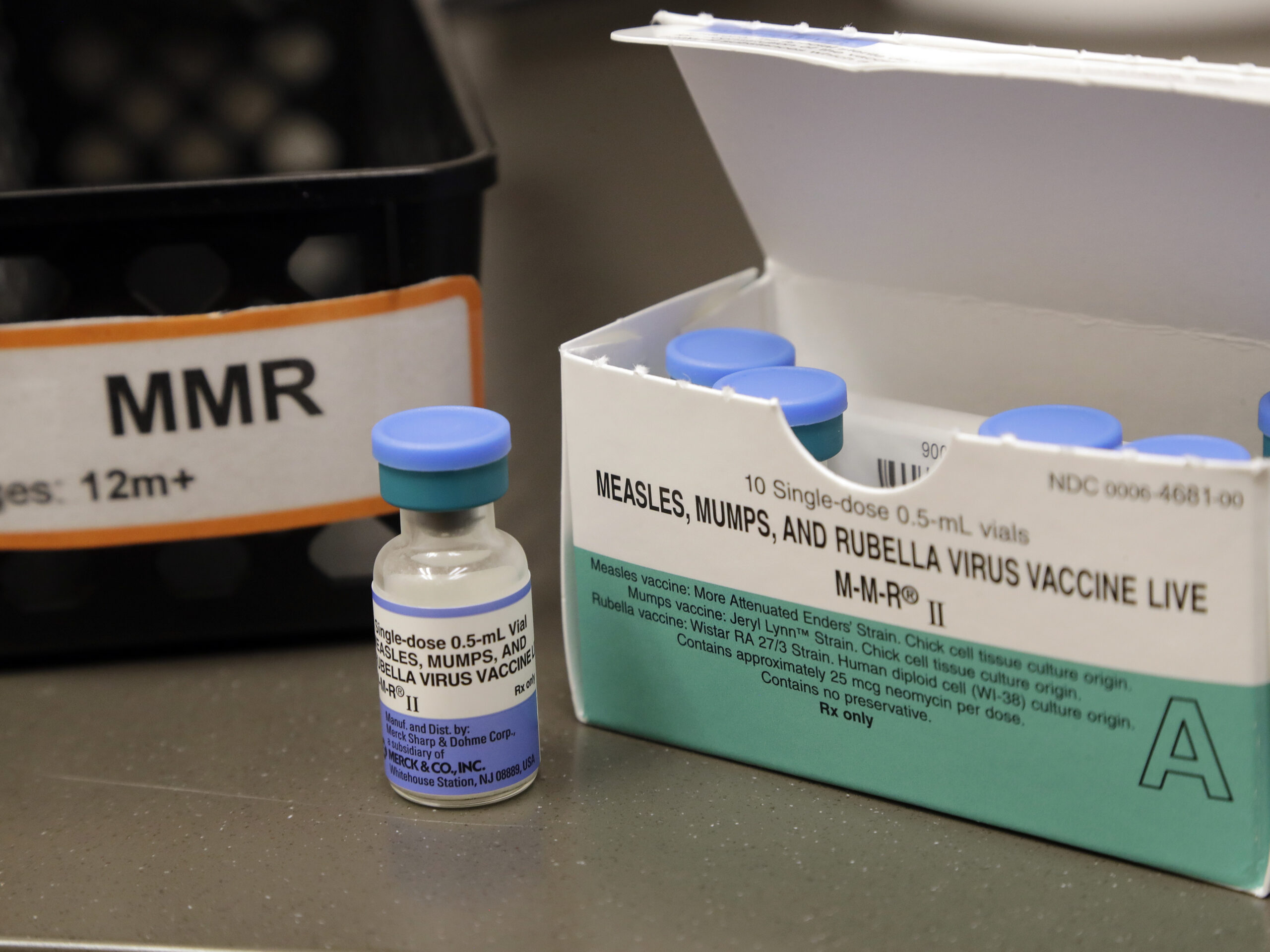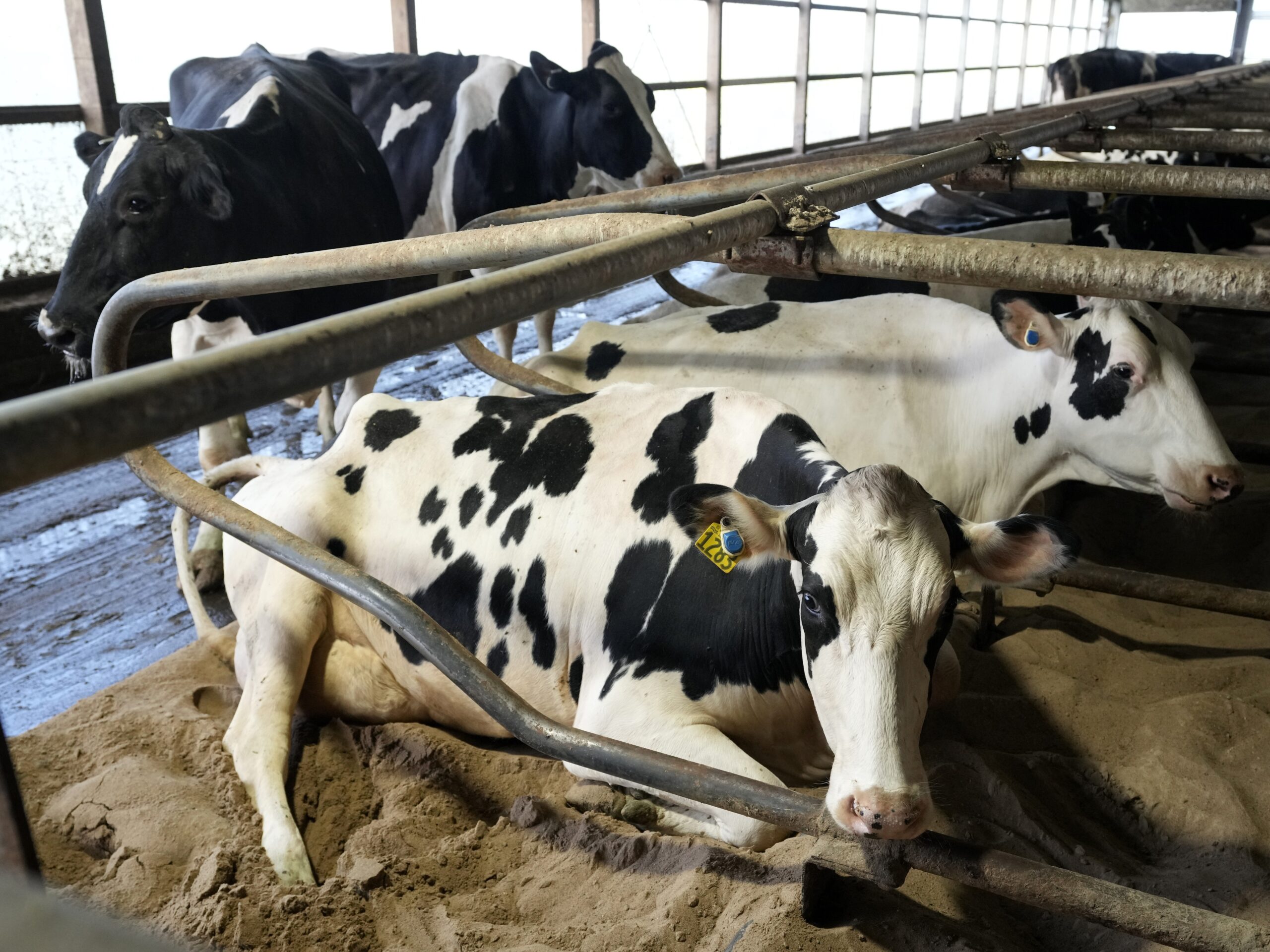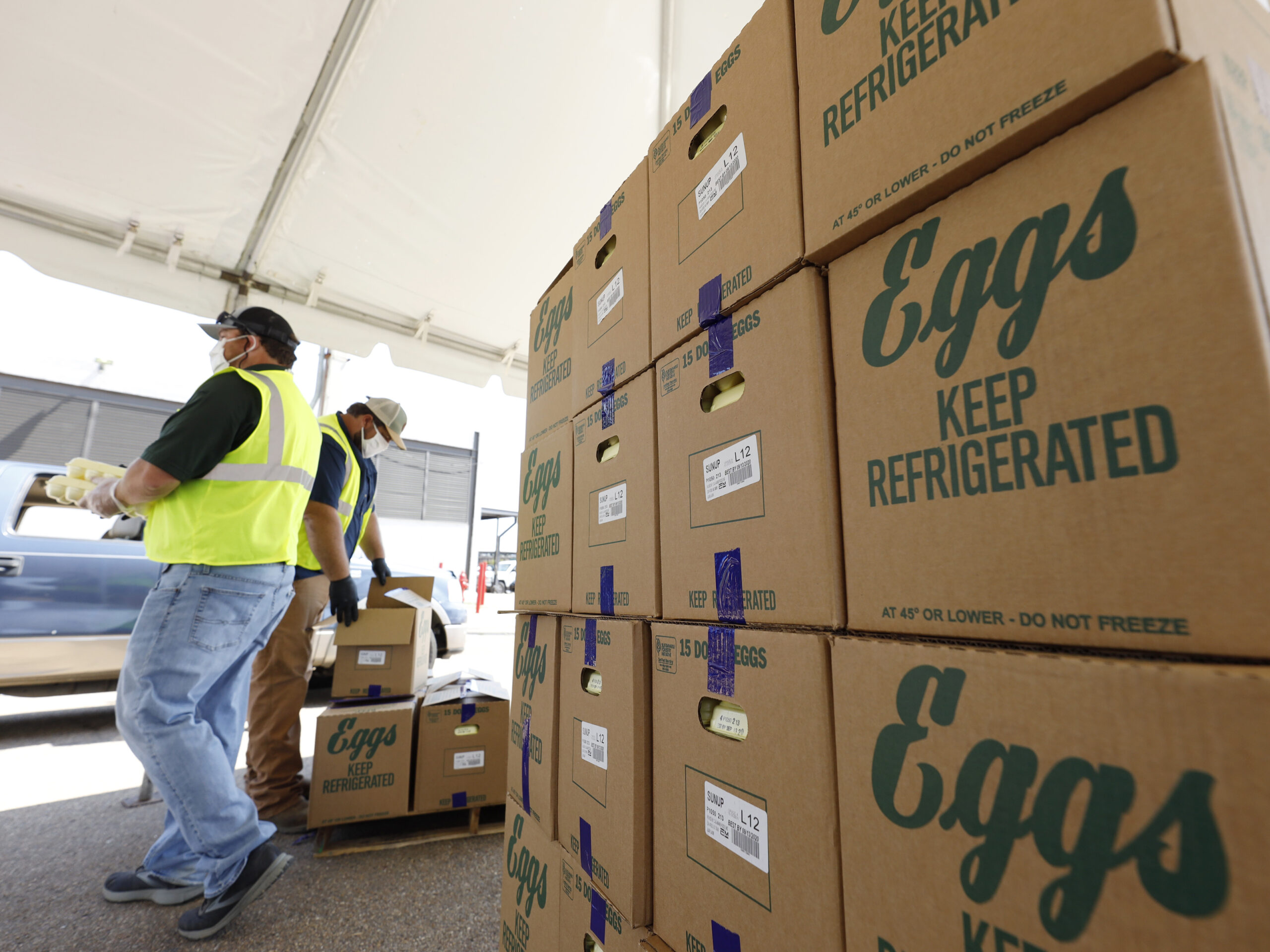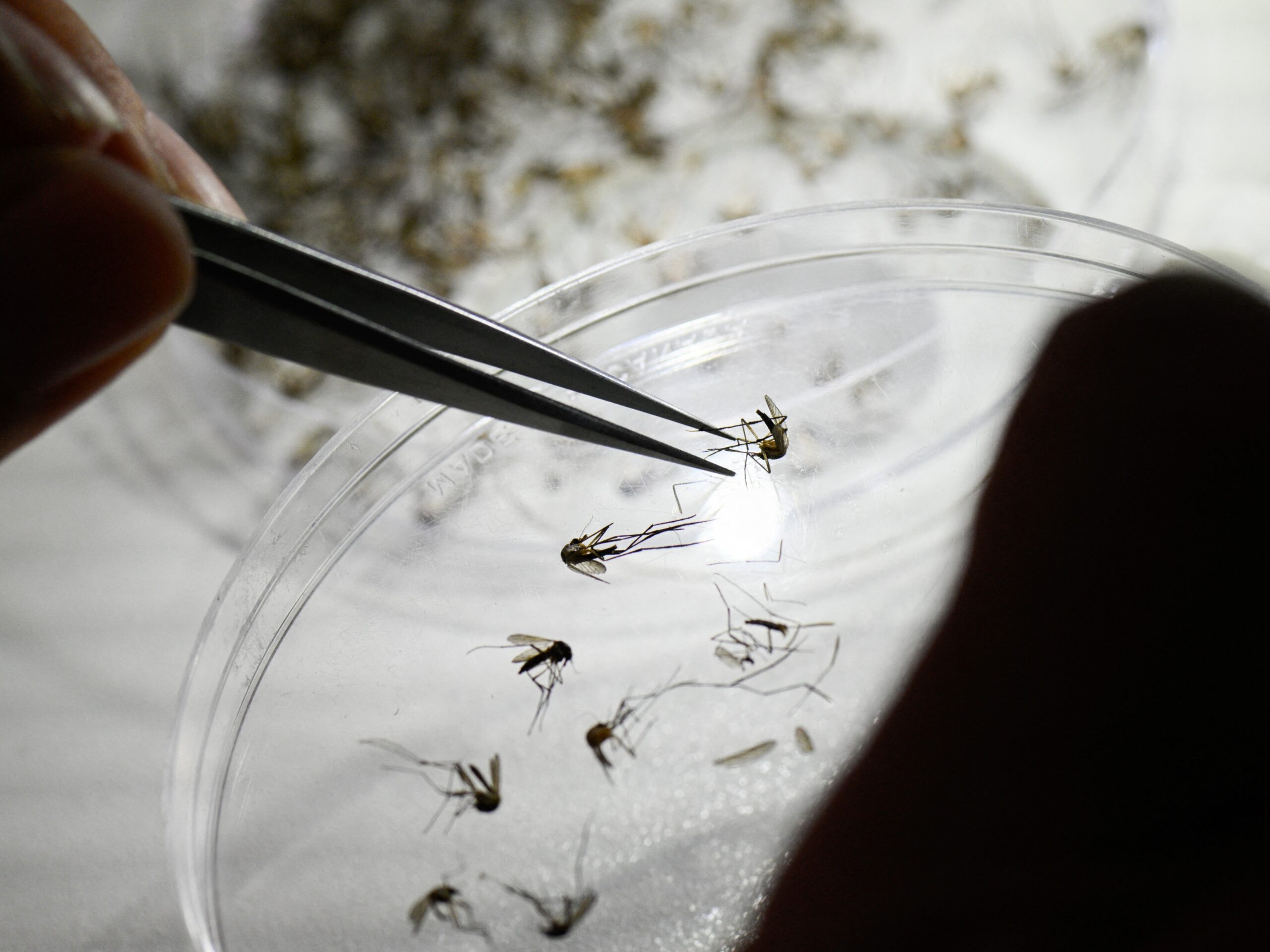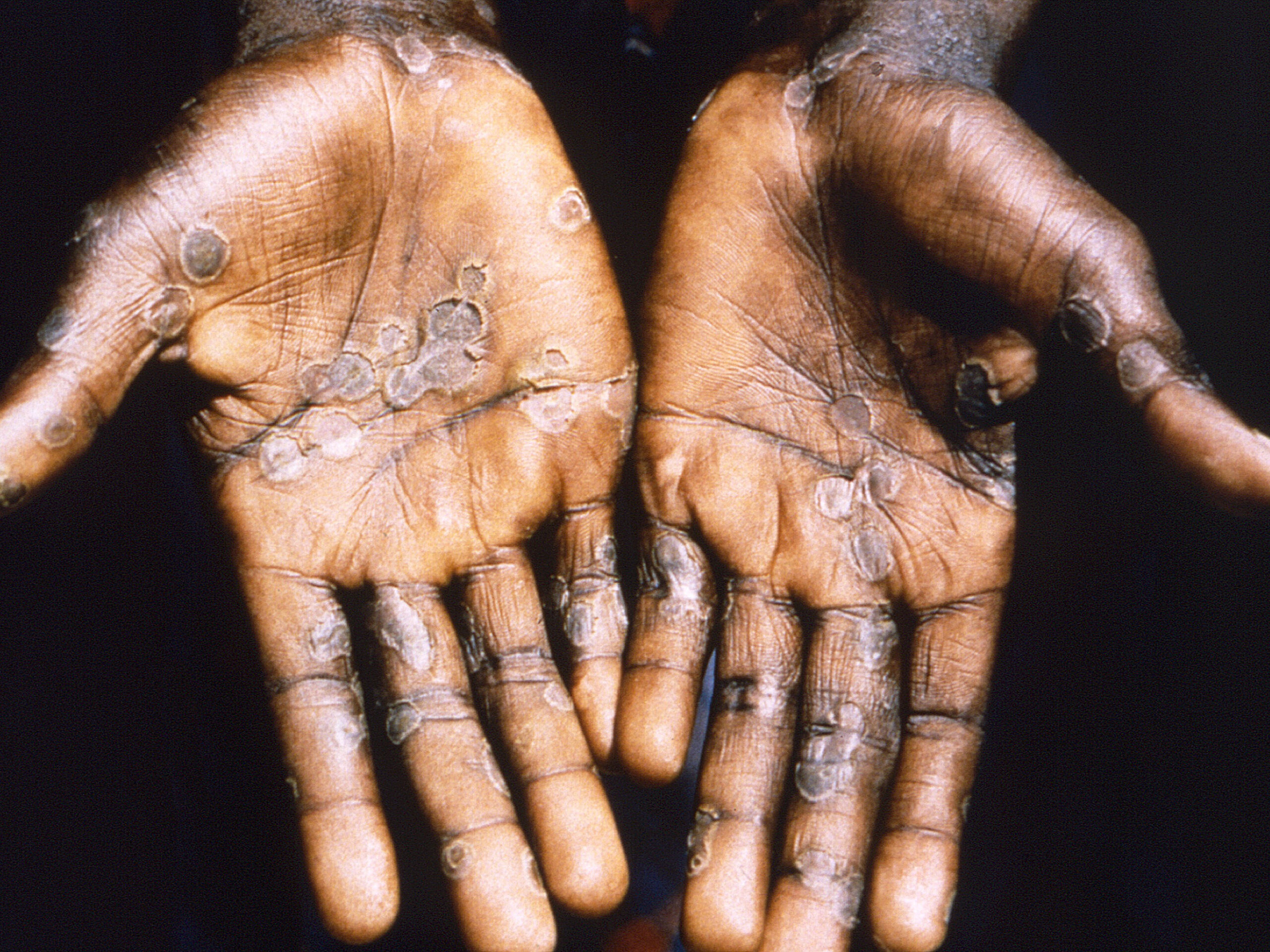Health experts warned of possible community spread of monkeypox in Wisconsin during a media briefing Friday in response to an ongoing outbreak in other states.
Twenty cases have been identified in 11 states as of Friday, though not in Wisconsin so far. According to a Centers for Disease Control and Prevention report released Friday, “all patients are clinically well.”
The disease can cause body aches, fever, enlarged lymph nodes and painful, fluid-filled blisters on the face, hands and feet.
Stay informed on the latest news
Sign up for WPR’s email newsletter.
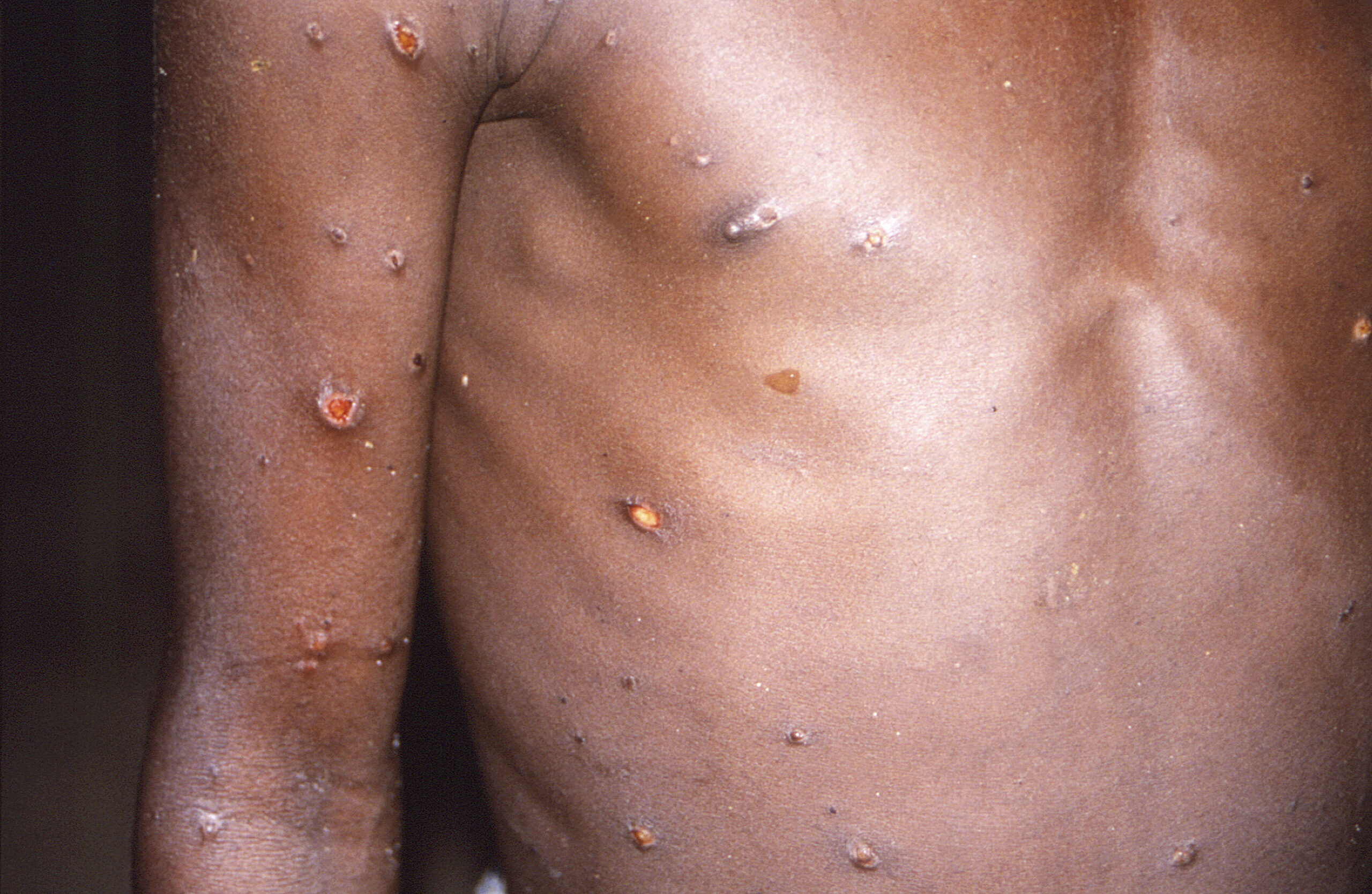
Dr. Jennifer McQuiston is the deputy director of the CDC’s Division of High Consequence Pathogens and Pathology. She said in a media briefing Friday though the majority of infected people were exposed to monkeypox while traveling abroad, at least one person with a confirmed case doesn’t know how they got it.
“This could be happening in other parts of the United States,” McQuiston said. “There could be community level transmission that is happening, and that’s why we want to really increase our surveillance efforts.”
Wisconsin was the epicenter of a 2003 outbreak of monkeypox, with 39 of 71 confirmed cases coming from the state, according to the CDC. The suspected origin of the outbreak was linked to a Milwaukee pet distributor who owned a sick Gambian giant rat.
According to the Wisconsin Department of Health Services, there haven’t been any additional monkeypox cases in the state since the 2003 outbreak.
Health experts say there’s enough vaccines available to manage the current outbreak. Dawn O’Connell, the assistant secretary for preparedness and response at the U.S. Department of Health and Human Services, said there are vaccines available to prevent both smallpox and monkeypox, though she wouldn’t divulge the exact number of vaccines in the national stockpile.
“While we need to remain vigilant and seek to contain the spread of monkeypox, the good news is that we already have the vaccines and treatments needed to respond,” O’Connell said.
McQuiston said the country’s containment strategy depends on identifying cases, identifying contacts of those cases, isolating people with cases and offering vaccines.
“I think we’re working very hard to contain it,” McQuiston said.
McQuiston said most of the cases reported in the United States have been found in men who have had sexual contact with men. She said outreach efforts have focused on raising awareness within the LGBTQ community, in addition to broader outreach.
“Our priority is to help everyone make informed decisions to protect their health and the health of their community, guided by science,” McQuiston said.
McQuiston said while the overall public risk level is still low, it’s too early to know whether monkeypox could become endemic, and that it’s been endemic in several countries for decades. According to the CDC, monkeypox cases outside of Africa have been linked to imported animals and international travel.
Wisconsin Public Radio, © Copyright 2024, Board of Regents of the University of Wisconsin System and Wisconsin Educational Communications Board.


